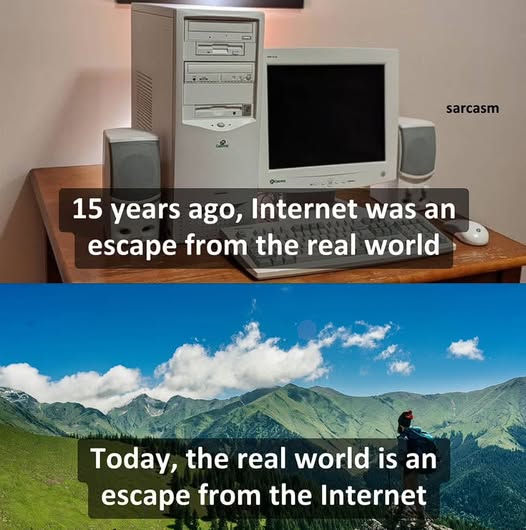Brain rot

“… the Oxford English Dictionary has just announced “brain rot” as its word of year. As an abstract concept, brain rot is something we’re all vaguely aware of. The dictionary defines it as ‘the supposed deterioration of a person’s mental or intellectual state, especially viewed as the result of overconsumption of material (now particularly online content) considered to be trivial or unchallenging’. But few people are aware of how literally technology is rotting our brains, and how decisively compulsive internet use is destroying our grey matter.
Brain rot was portended almost 20 years ago when scientists studied the effects of a new invention called ’email’, specifically the impact a relentless barrage of information would have on participants’ brains. The results? Constant cognitive overload had a more negative effect than taking cannabis, with IQs of participants dropping an average of 10 points.
And this was prior to smartphones bringing the internet to our fingertips, which has resulted in the average UK adult now spending at least four hours a day online (with gen Z men spending five and a half hours a day online, and gen Z women six and a half).
In recent years, an abundance of academic research … found evidence that the internet is shrinking our grey matter, shortening attention spans, weakening memory and distorting our cognitive processes. The areas of the brain found to be affected included ‘attentional capacities, as the constantly evolving stream of online information encourages our divided attention across multiple media sources’, ‘memory processes’ and ‘social cognition’.
Paper after paper spells out how vulnerable we are to internet-induced brain rot. ‘High levels of internet usage and heavy media multitasking are associated with decreased grey matter in prefrontal regions,’ finds one. People with internet addiction exhibit ‘structural brain changes’ and ‘reduced gray [sic] matter’. Too much technology during brain developmental years has even been referred to by some academics as risking ‘digital dementia’. …
Dr Gloria Mark, professor of informatics at the University of California and author of Attention Span, has found evidence of how drastically our ability to focus is waning. In 2004, her team of researchers found the average attention span on any screen to be two and a half minutes. In 2012, it was 75 seconds. Six years ago, it was down to 47 seconds. …
The term brain rot was popularised online by young people who are most at risk of its effects. The fact that those who are most at risk have the most self-awareness of the problem is heartening news. The first step towards any change is understanding the problem. And there is cause to be hopeful. In recent years, anti-technology movements have gained traction, from teenagers turning to dumbphones to campaigns for a smartphone-free childhood; green shoots for a future in which we are able to reclaim our minds. …”
aus: Siân Boyle: Is doom scrolling really rotting our brains? The evidence is getting harder to ignore, The Guardian online, 9.12.24, im Internet.
Abb.: Sarcasm, Facebook.
12/24
Leave a Reply
You must be logged in to post a comment.